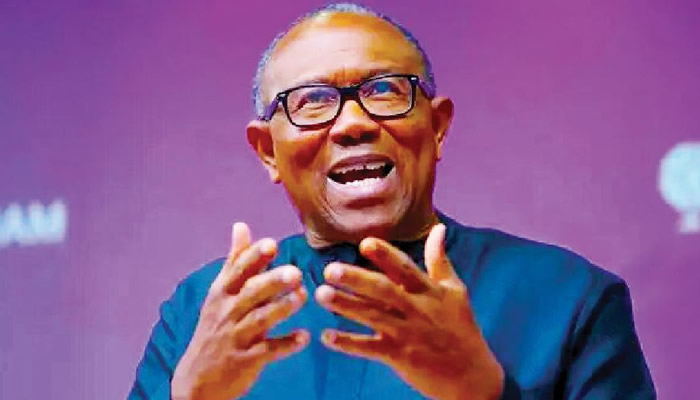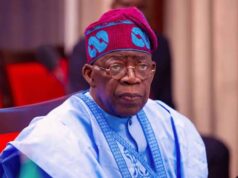Peter Obi’s recent statement at the 60th birthday colloquium of Rt. Hon. Emeka Ihedioha in Abuja, where he declared that democracy in Nigeria has collapsed, has sparked a firestorm of reactions. While some, including the Presidency, have criticized his remarks as hyperbolic, I find myself in complete agreement with the former governor, 2023 Labour Party Presidential Candidate.
Nigeria’s 4th republic democratic experiment, which began with much promise in 1999, has devolved into a hollow shell of its intended ideals, plagued by systemic corruption, electoral malfeasance, and a governance structure that prioritizes the elite over the masses. Obi’s stark critique is not only accurate but a necessary wake-up call for a nation teetering on the edge of democratic failure.
Let’s begin with the state of our elections, the cornerstone of any functioning democracy. Obi himself highlighted a personal experience that underscores how far we’ve fallen. As governor of Anambra State, he secured his mandate through the courts without paying a single naira in bribes—a feat he rightly notes would be impossible today. The 2023 general elections, in which Obi was a presidential candidate, further exposed the rot. Reports of voter suppression, ballot box snatching, and the manipulation of results through the Independent National Electoral Commission (INEC) were rampant. The Georgetown Journal of International Affairs noted in 2021 that the 2019 election eroded public trust in INEC’s ability to conduct free and fair elections, a trend that has only worsened. If the people’s votes no longer determine their leaders, can we truly call this a democracy?
Beyond elections, the governance structures meant to uphold democratic principles have been hollowed out. Obi lamented that institutions in Nigeria no longer function, and the evidence is overwhelming. The judiciary, once a bastion of hope for justice, is now often seen as a tool of the highest bidder. The legislature, meant to represent the people, is riddled with lawmakers more interested in personal enrichment than public service. A 2012 study on corruption in Nigeria, cited in the web results, estimated that the country has lost over $400 billion to corruption since independence. This staggering figure reflects a political class that has weaponized power to amass wealth, leaving ordinary Nigerians in abject poverty.
Peter Obi’s critics, like Bayo Onanuga, argue that his claim is unfounded because Nigeria has enjoyed 26 years of uninterrupted democracy. But longevity does not equate to quality. A democracy that fails to deliver competitive elections, the rule of law, political freedom, and respect for human rights—as outlined in the Georgetown Journal—is a democracy in name only. If anything, the past 26 years have shown how deeply entrenched the corrupt political class has become, a point echoed in the Chatham House report. The practice of “stomach infrastructure,” where politicians use food items like rice to buy votes, as seen in the 2015 Ekiti election, exemplifies how poverty and illiteracy are exploited to perpetuate this failed system. Obi’s assertion that “everything has been knocked down and nothing works” resonates with anyone who has watched Nigeria’s democratic promise crumble under the weight of greed and incompetence.
The web results also highlight historical parallels that reinforce Obi’s argument. During the Gowon administration in the 1970s, corruption scandals involving figures like Joseph Tarka were met with reformist changes under Murtala Mohammed, who sacked corrupt officials. Yet, today, such accountability is rare. The Halliburton scandal under Olusegun Obasanjo’s presidency and the suitcase saga involving Atiku Abubakar in 1984 show that corruption has long been a feature of Nigerian governance. But the scale and impunity have only grown worse, with government employees reportedly earning over $1 million annually in 2018 while millions of Nigerians live on less than $1 a day.
Obi’s statement is not just a critique—it’s a call to action. Nigeria’s democracy cannot be salvaged by empty promises or superficial reforms. We need a complete overhaul of our political system, starting with an electoral process that ensures the people’s votes count. We need leaders who prioritize competence over patronage, as Obi himself has exemplified in his political career. And we need an informed electorate, empowered through education and civic engagement, to hold those leaders accountable. The NGOs suggested in the Georgetown Journal, which could develop a Charter of Rights and Responsibilities for civics education, offer a practical starting point.
To those who dismiss Obi’s words as playing to the gallery, I say: look around. The evidence of democratic failure is in the empty stomachs of Nigerian children, the insecurity that keeps families awake at night, and the hopelessness that drives our youth to seek better lives abroad. Peter Obi is not the problem—he is the messenger. Nigeria’s democracy has failed, and it’s time we stop pretending otherwise. The question now is whether we dare to rebuild it.
— Maazi Tochukwu Ezeoke is a concerned Nigerian citizen and advocate for good governance.








